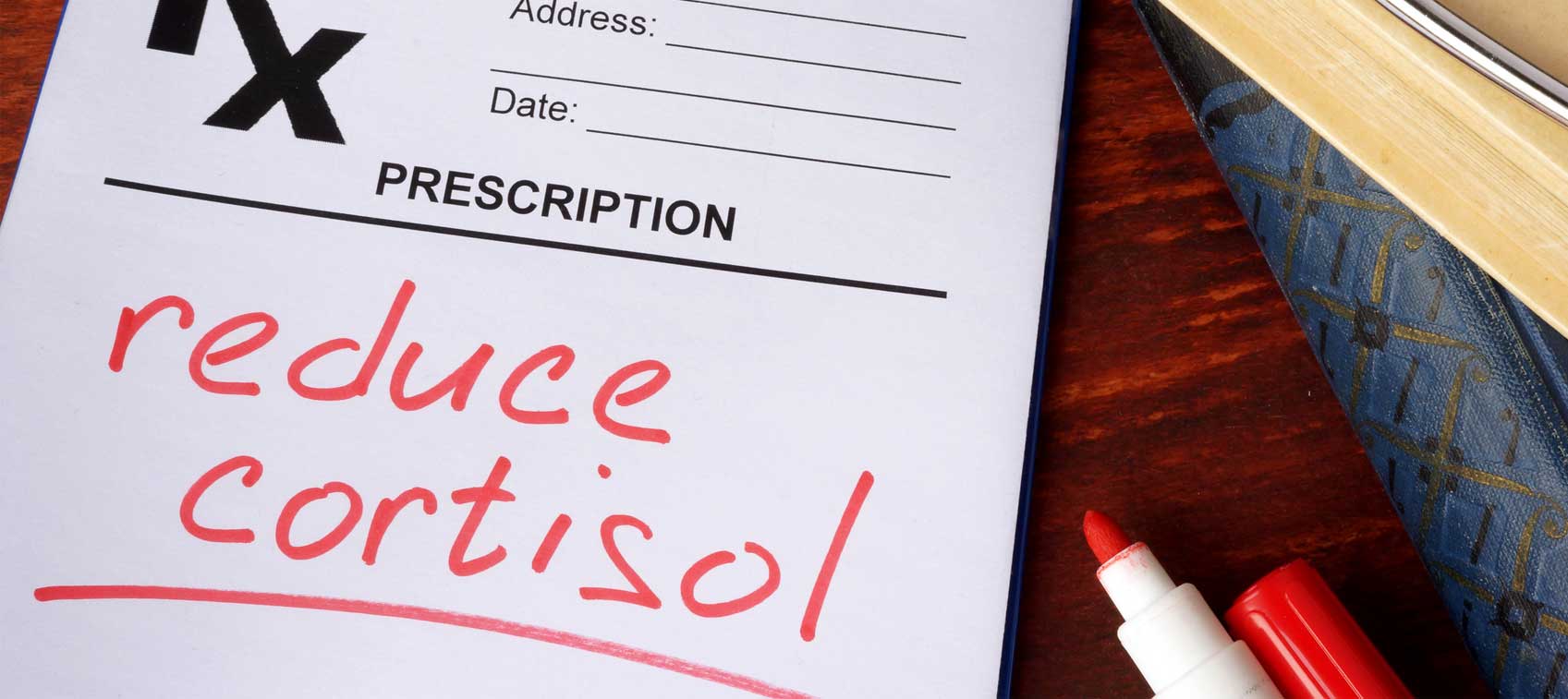
The adrenal glands are thumb-sized glands that sit atop the kidneys. They produce dozens of hormones including adrenaline (epinephrine) and cortisol, which play key roles in the body’s stress response, an involuntary process that allows us to rapidly react to environmental threats.
At any hint of danger, the hypothalamus in the brain signals the adrenals to release a surge of adrenaline to ready the body for “fight or flight.” Next, the HPA axis (hypothalamus, pituitary and adrenal glands) is activated, triggering the release of cortisol to keep the body hyper-alert and ready to rumble. Glucose is mobilized to provide extra energy, and blood pressure and heart rate increase. Areas of the brain associated with motivation and fear are revved up, and immune, digestion, and other functions that aren’t immediately essential are suppressed. Once the alarm stage passes, cortisol levels return to baseline.
The stress response is a survival mechanism that keeps us out of harm’s way, but problems occur when we’re chronically stressed. Whether it’s traffic, pressure at work, family issues, scary news, or emotions such as anger and fear, the stress response kicks in. And when one stressor follows another, stress hormones remain elevated.
Cortisol and Adrenal Function
Frequent adrenaline spikes increase risk of hypertension and heart disease, but elevated cortisol has more widespread effects. It causes nervousness, anxiety, and sleep problems, raises blood pressure, and slows healing. It increases appetite, especially for fast-burning carbs, and facilitates storage of abdominal fat. It even affects cognition—chronically high cortisol actually shrinks areas of the brain.
When stress is prolonged or extreme and demands on the adrenals are just too much, cortisol levels may fall too low. Symptoms of adrenal fatigue, as this is sometimes called, include extreme fatigue, lethargy, compromised immune function, low blood pressure, hypoglycemia, weight loss, and poor tolerance to physical and mental stress and exertion. Post-traumatic stress disorder (PTSD) is often associated with very low cortisol levels. Dependency on steroid medications (prednisone, asthma meds) also suppresses natural adrenal hormone production and affects adrenal function.
Adrenal function that is mildly to moderately impaired is difficult to diagnose with conventional blood tests. Saliva cortisol levels, taken several times during the day, give a better picture, as they reveal disturbances in the natural rhythms of cortisol release. (Levels are normally higher in the morning as you wake up and lower at night to facilitate sleep.)
Support Adrenal Function
Drugs such as prednisone and hydrocortisone to boost cortisol levels are usually the treatment for severe adrenal fatigue and insufficiency (Addison’s disease). Some physicians treat milder forms with small doses of hydrocortisone, and others use adrenal extracts from the glands of animals or licorice (Glycyrrhiza glabra), which decreases cortisone breakdown in the liver. These therapies are not for everyone and are best used under a doctor’s supervision.
Most patients with stress-related adrenal fatigue do well with lifestyle changes and targeted supplements. Do your best to minimize the stressors in your life. You can’t walk away from your job or your family, but you can tune out stressful news, social media, and the like. Go to bed at a reasonable time. Take control of your time and commitments and find opportunities to relax and laugh. Exercise, but don’t overdo it. Try yoga, tai chi, meditation, prayer, massage, and acupuncture, which are great stress busters.
Eat a healthy, low-glycemic diet with plenty of protein, vegetables, and healthy fats, and drink caffeine and alcohol only in moderation. Take a good multivitamin with robust levels of magnesium and vitamins B5, B6, C, and D, and consider adding DHEA, another hormone produced by the adrenals that counters some of the negative effects of cortisol.
When cortisol is elevated, DHEA is often suppressed, and supplemental DHEA helps restore balance. Suggested starting dosages of DHEA are 10–25 mg for women and 25–50 mg for men. Test your DHEA-S blood level after three months and make adjustments to stay in the young-adult range, regardless of your age.
Adaptogens are plant extracts that increase resistance to the adverse effects of stress, in part by targeting adrenal hormones. Because of their balancing effects, they are helpful for both overactive and underactive adrenals. Popular adaptogens include Panax ginseng, Eleutherococcus senticosus, Rhodiola rosea, and Cordyceps sinensis, which improve focus, energy, and endurance; and ashwagandha (Withania somnifera), L-theanine (from green tea), and magnolia bark (Magnolia oficinalis), known for their calming effects on anxiety, tension, and insomnia.
Philosopher William James once said, “The best weapon against stress is our ability to choose one thought over another.” If mind over matter isn’t working for you, give your adrenals a little TLC.


